Families in Peru spend a lot of time talking about soccer, movies, or video games but very little time talking about the life of Christ.
So in keeping with the GCM emphasis on “Bold Moves,” last December Alex Cotrina, GCM director in Peru, set out to change the culture. He and several colleagues asked 37 pastors to accept a challenge: spend one hour every day with their wife, children and neighbors talking about the life of Jesus. They would take the “JESUS” film, which has been divided into 61 video segments, and go through one segment each day for the 31 days of December.
Resistance arose immediately. “December is our busiest time of the year!” said some. “December is not an appropriate time to do this,” said others, “because everyone is focused on the holidays.”

Nevertheless, Alex, a pastor himself and well acquainted with holiday stress, persisted. Nor was he alone in his insistence. The 37 pastors were members of Glory to God, a Peruvian denomination, and Alex was on the national leadership team. “Our decision was firm,” he says. “If a pastor was not willing to spend one hour a day talking about Jesus to his wife and family, then he is a charlatan and not qualified to care for his church. We said that those who were not willing to do this would lose their jobs as pastors.”
Caring for the pastor’s family
Alex and his colleagues believed that asking pastors to do this could help the Peruvian church in several ways. First, it helped develop the pastor as a whole person. The typical pastor in Peru is so dedicated to his church and ministry that he spends little time with his family, according to Alex, and often the children turn away from the Lord. “We have learned we must care for and empower the pastoral family,” says Alex.
And this is not only true in Peru, by the way. “We in GCM include a well-functioning leader for every new church as part of our goal,” says Keith Seabourn, strategy director for the global GCM team.
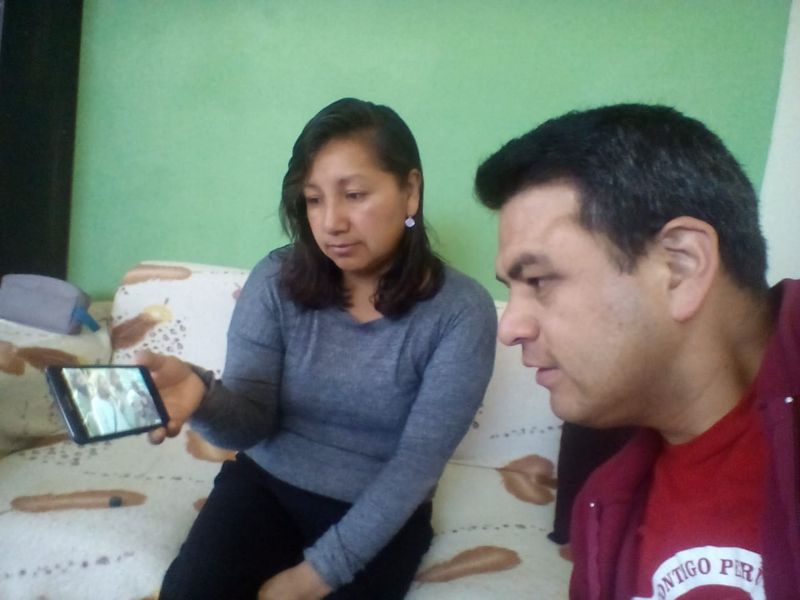
Second, the typical lay person in Peru expects the pastor to do all the work. Alex and his colleagues are trying to change the paradigm. This challenge was simply the opening round of presenting the MC2 (Multiplying Churches and Communities) training to the denomination. “MC2 has given us the opportunity to make multiplying disciples and break the traditional perspective on ministry,” says Alex. “We are training everyone in the church to make disciples.”
The third challenge, and perhaps most profound, lies in people’s ability to understand the scriptures. Although most people can read and write, many cannot understand what they read. In fact, Peruvian educator Leon Trahtemberg has written about UNESCO studies finding that Peruvians, though literate, rank near the bottom in ability to understand the written word. Naturally this affects the body of Christ. Believers may read the Word of God, but not understand how it affects them.
Alex had been working with Cru staff member Ron Burgin to develop an oral version of MC2 to be used with indigenous peoples. He realized this could be used in the cities, too, so that people with poor reading skills could understand the training and make disciples.
Alex and the Glory to God leadership team decided to run a pilot program, and they asked the pastors to be the first to spend an hour a day teaching their families, friends and relatives. They would watch a clip from the “JESUS” film, thus enabling those with poor reading skills to understand the Word, then spend the rest of the time discussing how it should affect their life.
Amazing Results!
That first week was uncomfortable, yet God did amazing things. Wives called in to say their husbands were upset about this, and found it hard to sit down with their children, but the kids liked having their father pay attention to them. In fact, 89 children of pastors were reconciled to Jesus Christ that first week alone.
“Children have called to say ‘thank you for giving me back my father,’” says Alex. “A 13-year-old named Joshua said, ‘My daddy stopped everything to have a family time. That was amazing to us!’”
The second week Alex received a call from Olivia, wife of a pastor in the capital city of Lima. “Thank you!!” she said.
“For what?” asked Alex.
“My husband never took time for his family,” said Olivia. “He was always too busy and tired. But in the last two weeks, we have had a father in our home. I know he’s doing this because he will lose his job if he doesn’t, but this has been the most blessed two weeks of my life, sharing the life of Jesus together with my husband and children!”
Accountability: Where’s your photo?
All this did not happen without encouragement. Juan Carlos Cipriano, known as “Chipi,” took responsibility for follow up. Each day every pastor was supposed to send a photo of himself with his family. At first they would forget, so Chipi would phone them and say, “It’s 9 pm, where’s your photo?” Then an hour later another call, “It’s 10 pm, you have two hours to get me your photo!” And at 11 yet another call: “One more hour! I’m still waiting!”
“This was hard,” says Alex, “because the pastors didn’t like the accountability. They didn’t like people asking them for reports. But after a while it became a habit.”
A key element of MC2 involves the pastors modeling what they teach. “When pastors are not interested in being a model,” says Alex, “the process won’t work. It is dangerous.”
But when pastors embrace the concept of modeling what they teach, God can do dramatic things, as Pastor Christian Pajuelo found out.
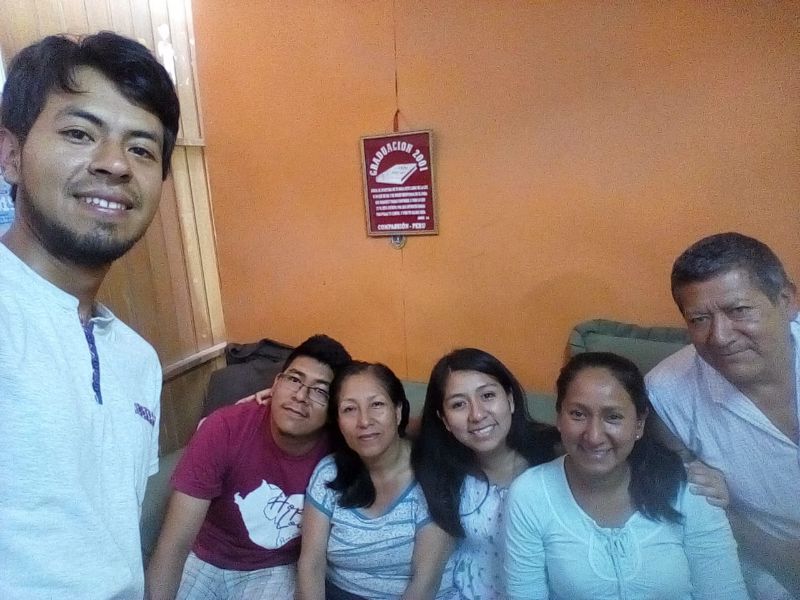
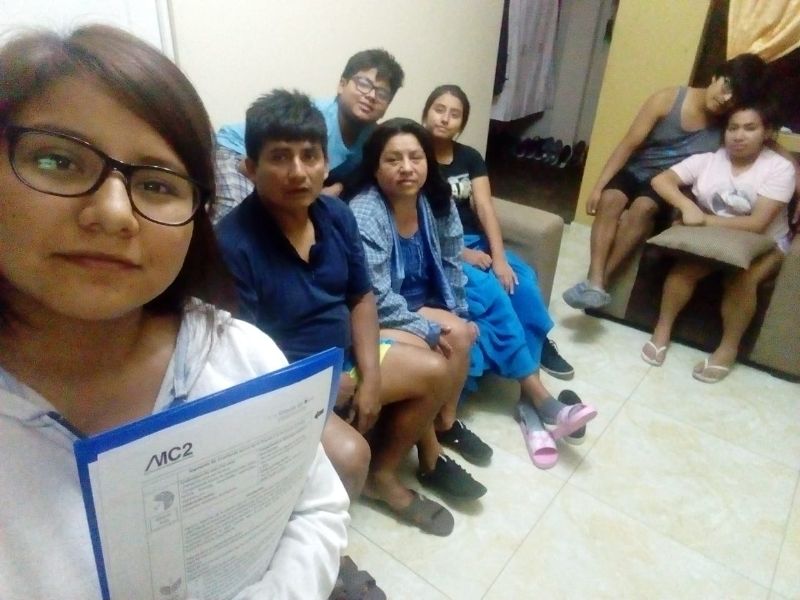
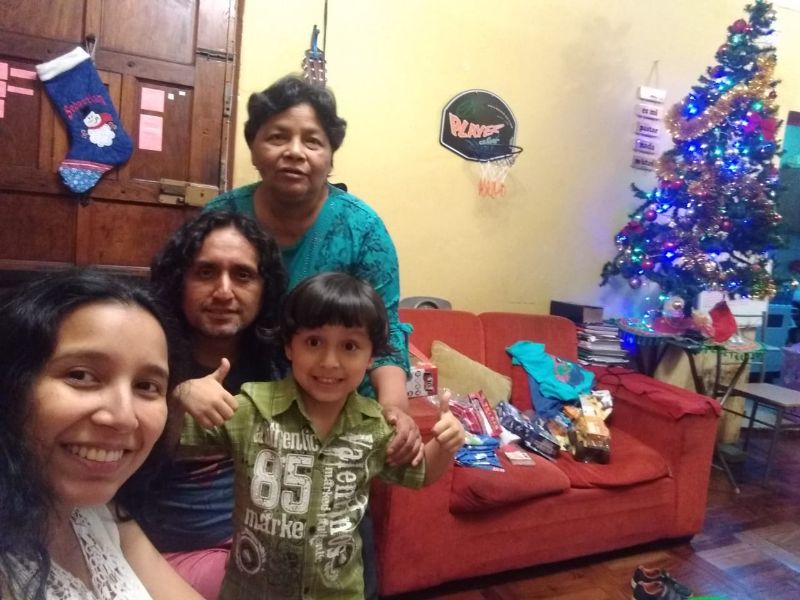
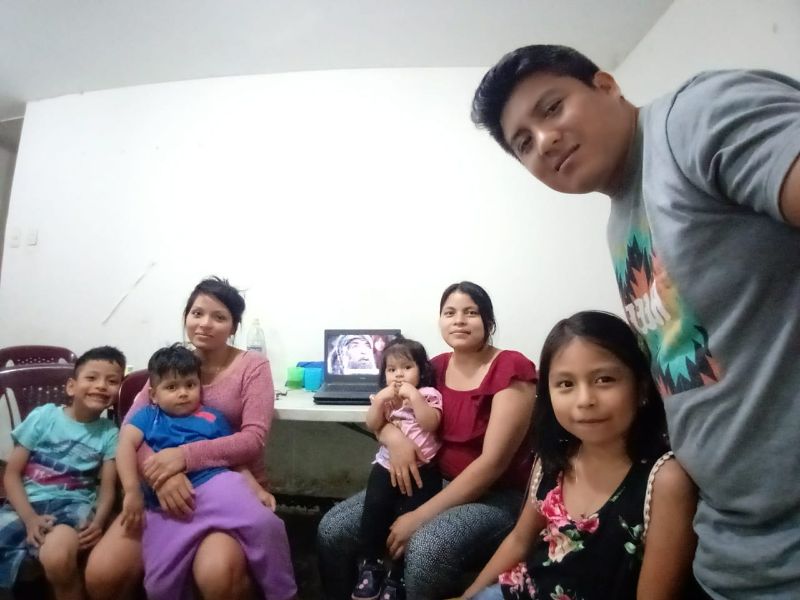
Pastors and their families.
“Applying the training challenged my ministerial life,” he says, “because I was a good teacher of discipleship but didn’t share the word of God in my home. When Alex challenged us with the goal of 31 days, I developed a devotional discipline with my family. And that gave me greater authority to teach it to the church. Today members of our congregation realize you can’t just be a Christian in church, but your first field of missionary action must be your home, then your congregation and then everybody around you.”
By the end of December, the pastors had embraced the concept of being models, and were more than willing to continue on through January. They began teaching leaders in their churches to do the same thing, and in February 97 additional families began spending an hour a day together studying the life of Jesus. All in all, some 478 people were influenced in just three months.






